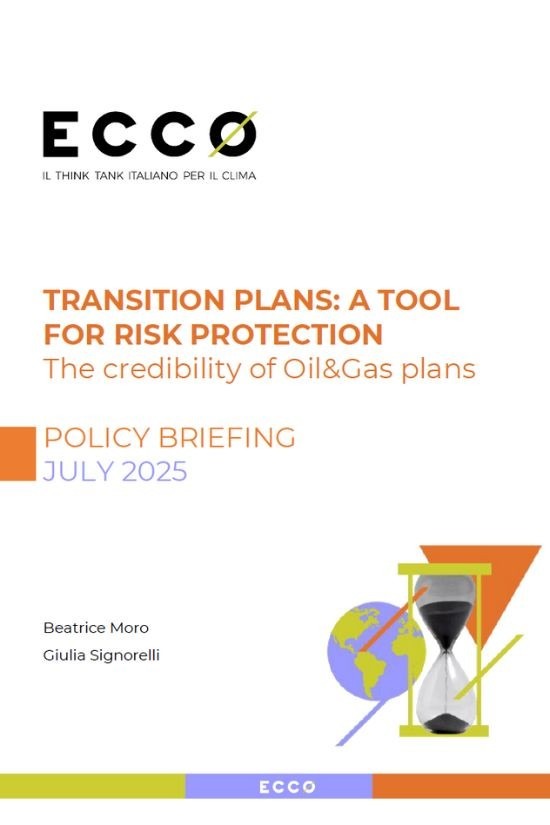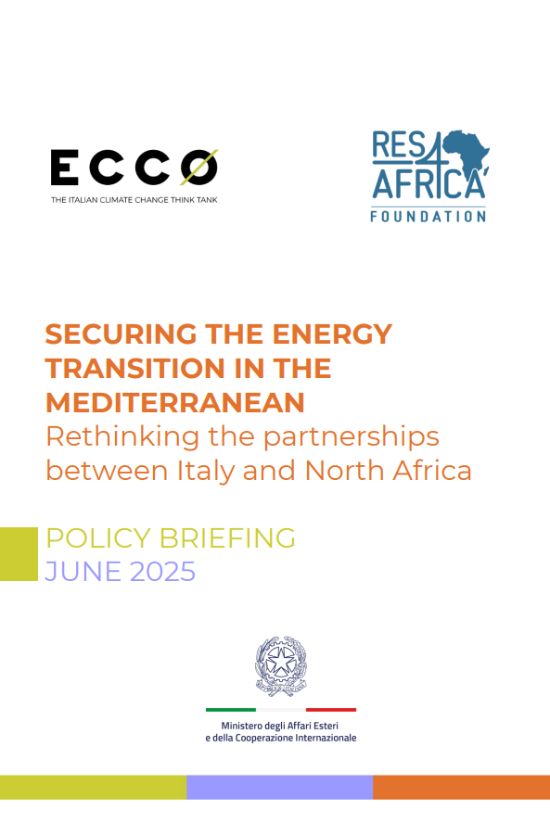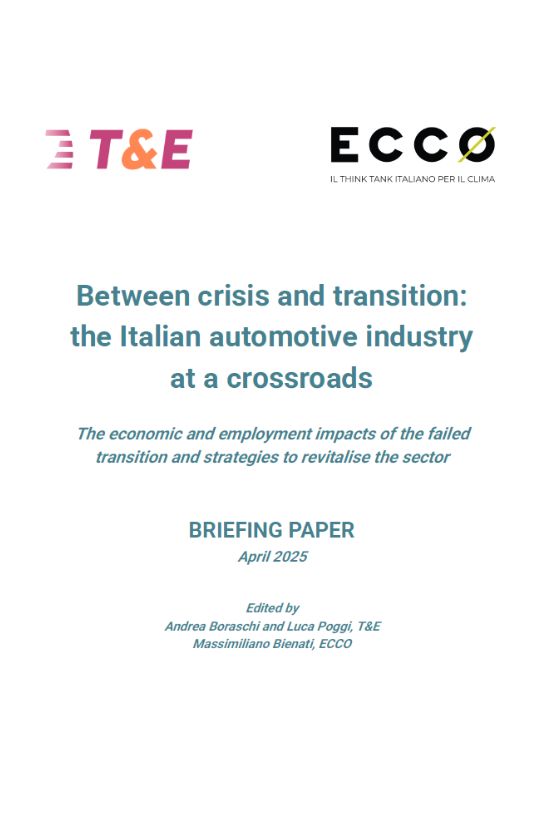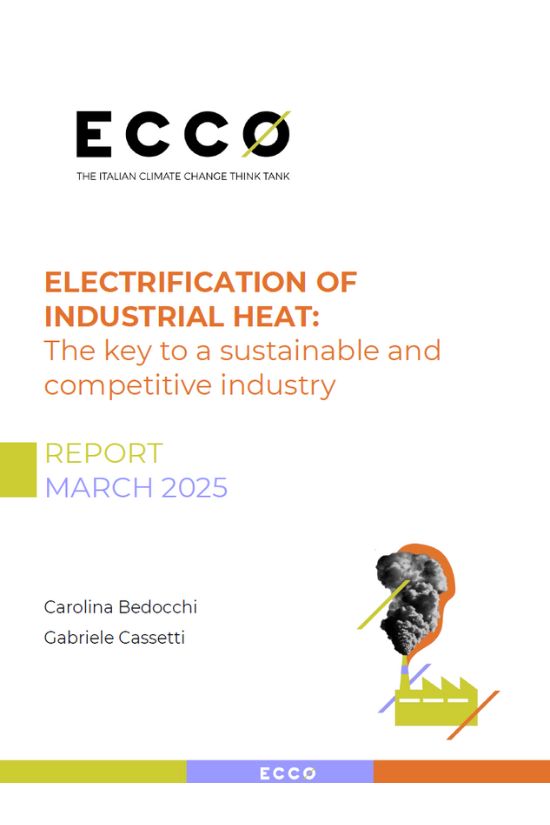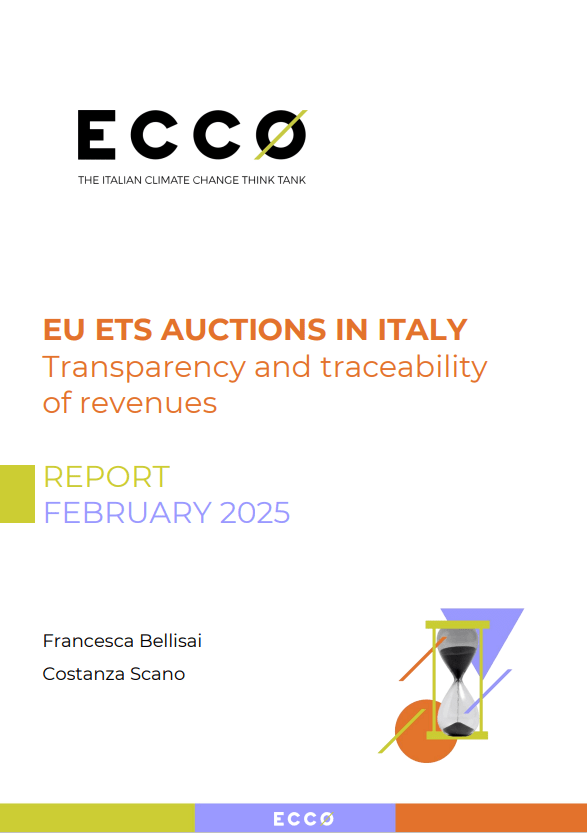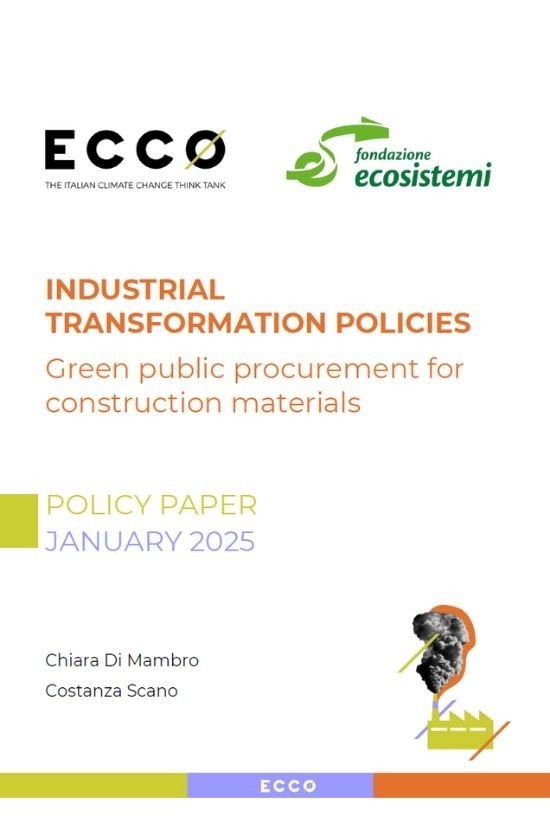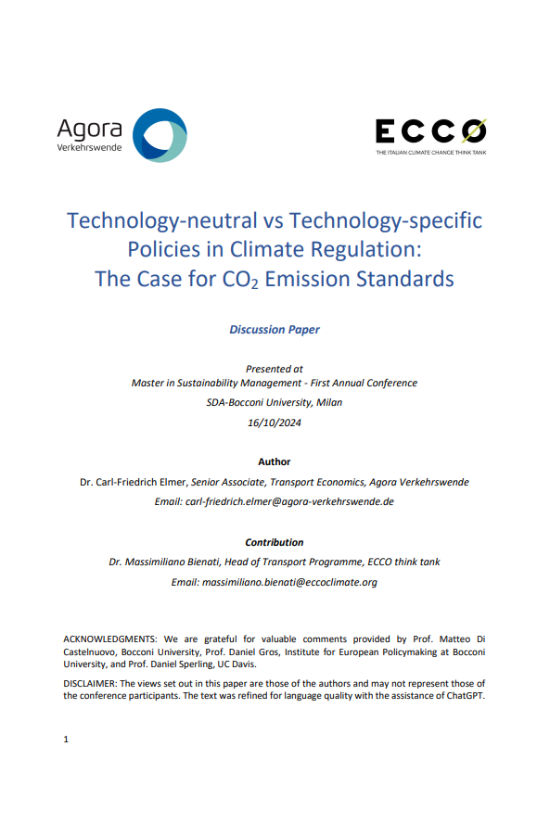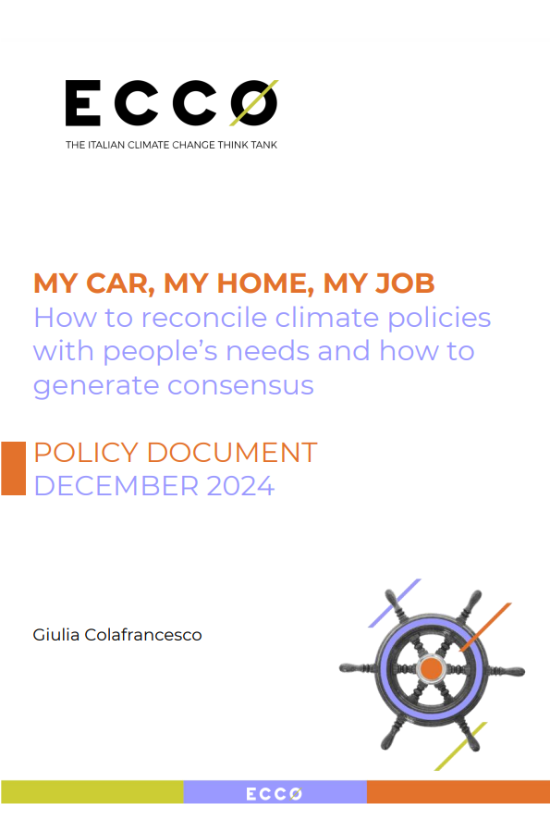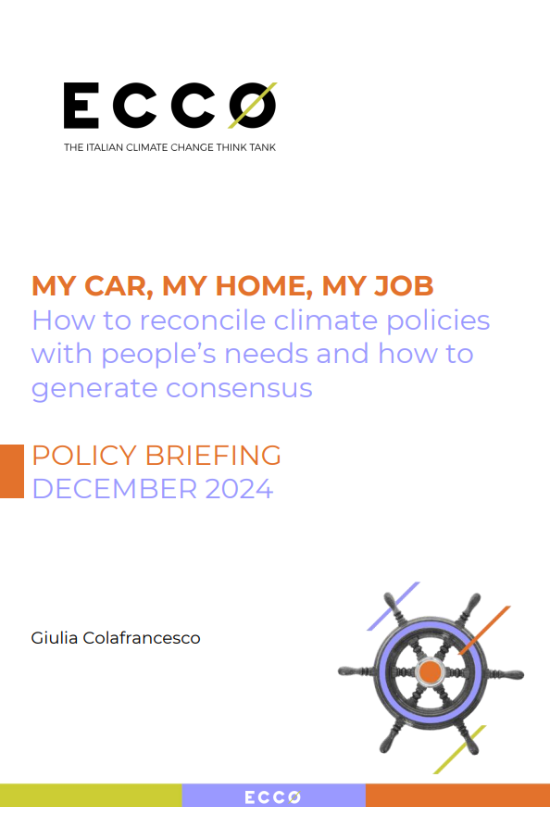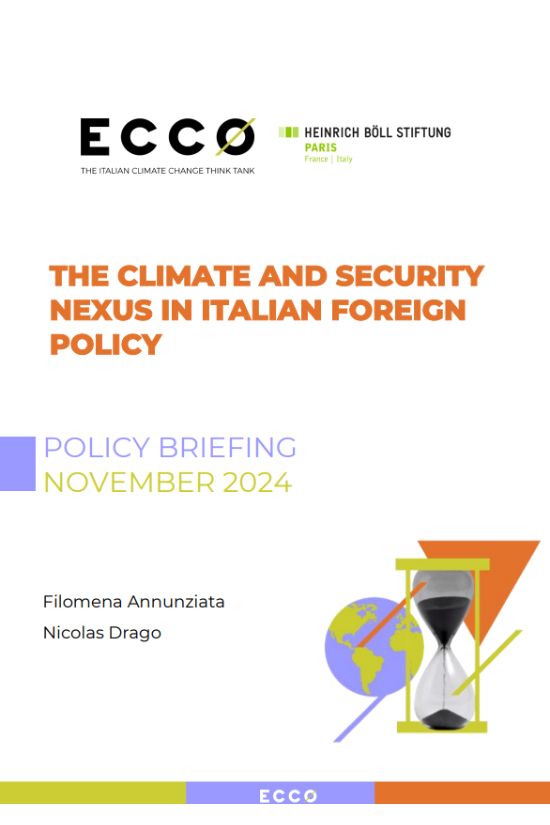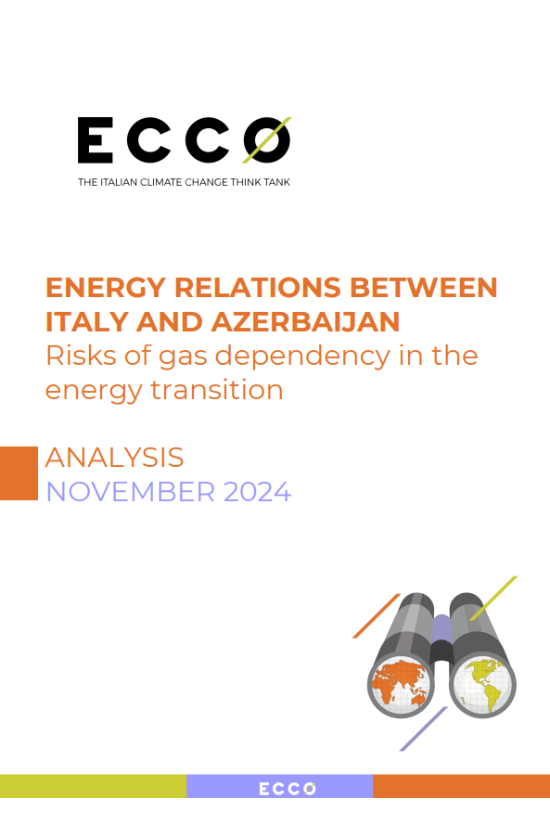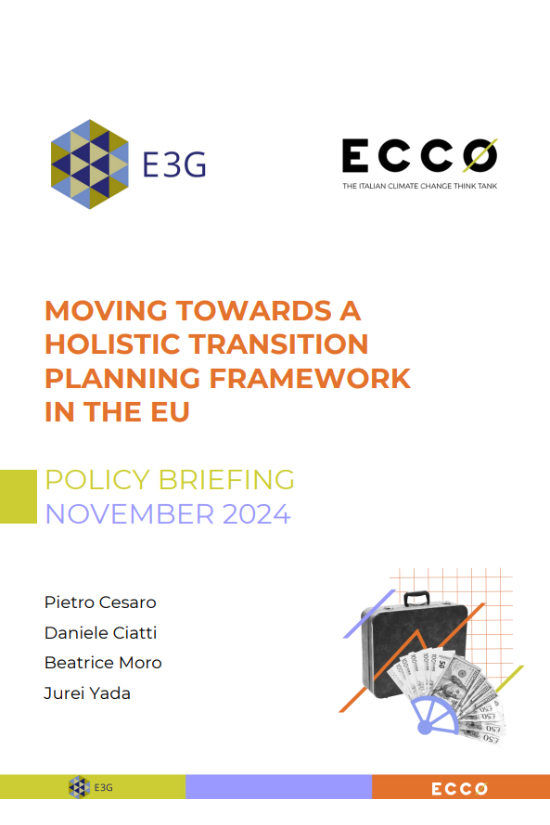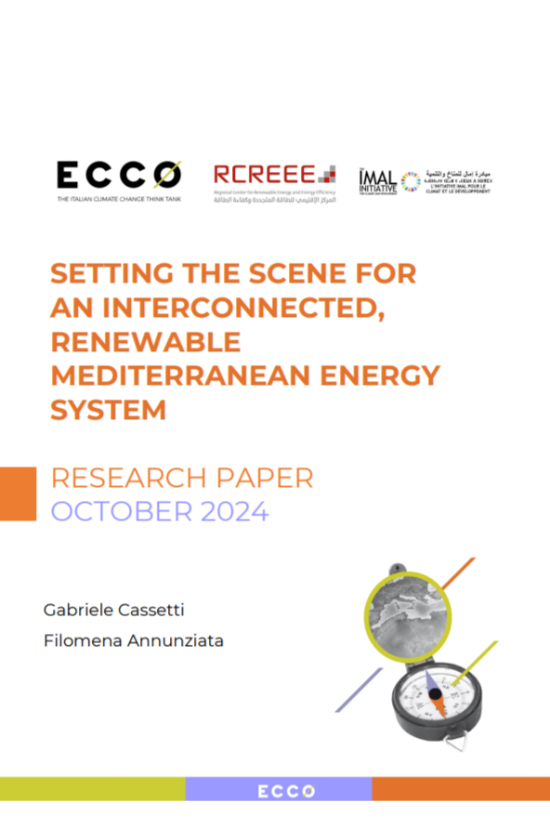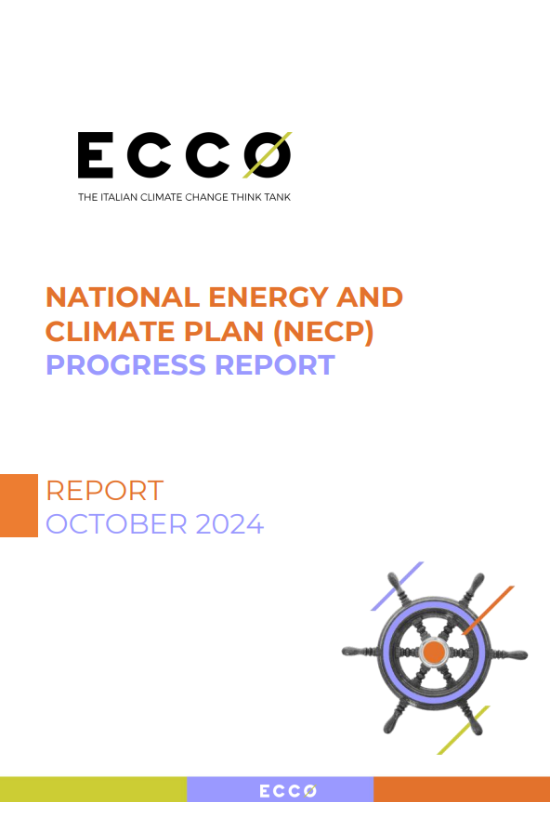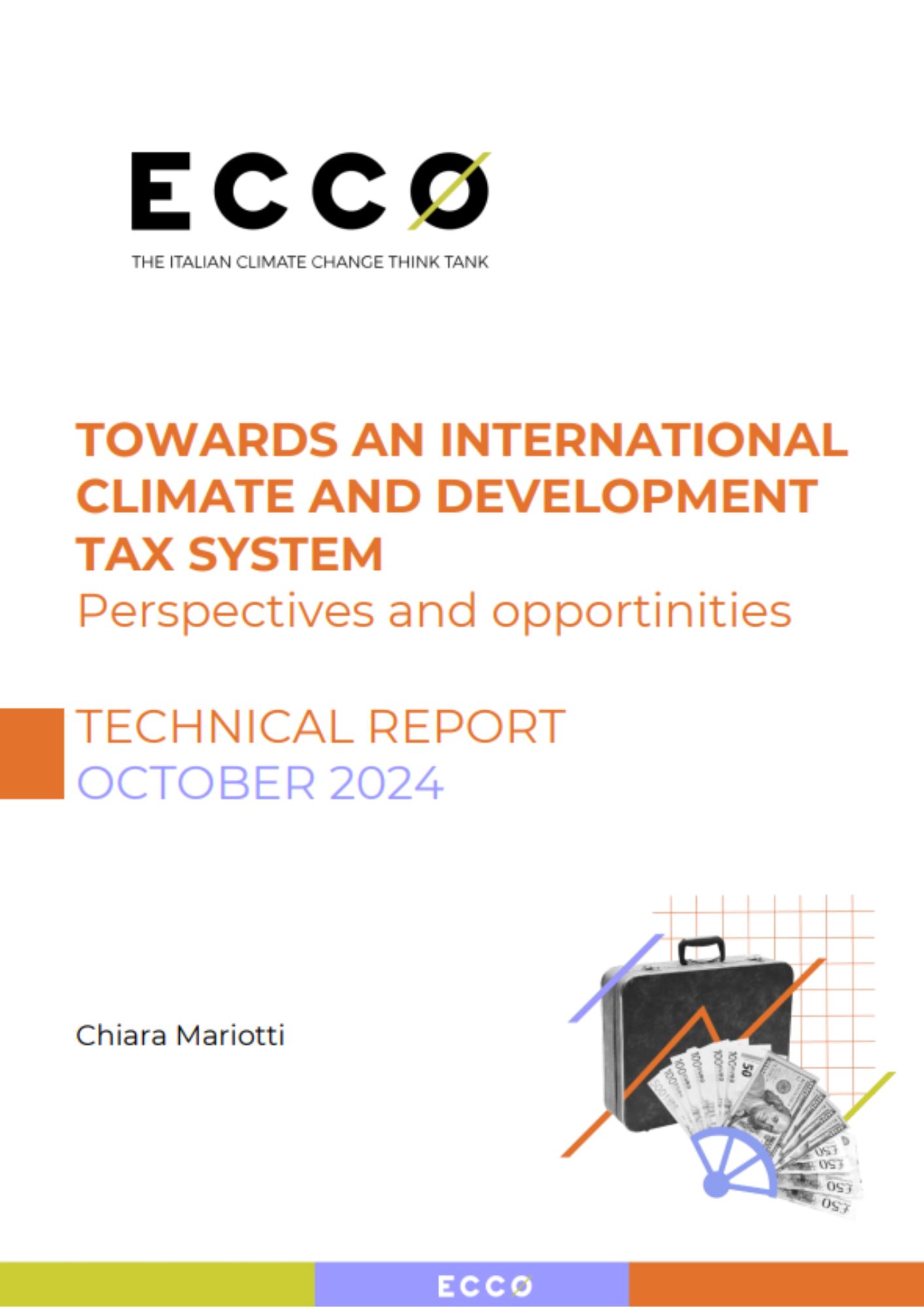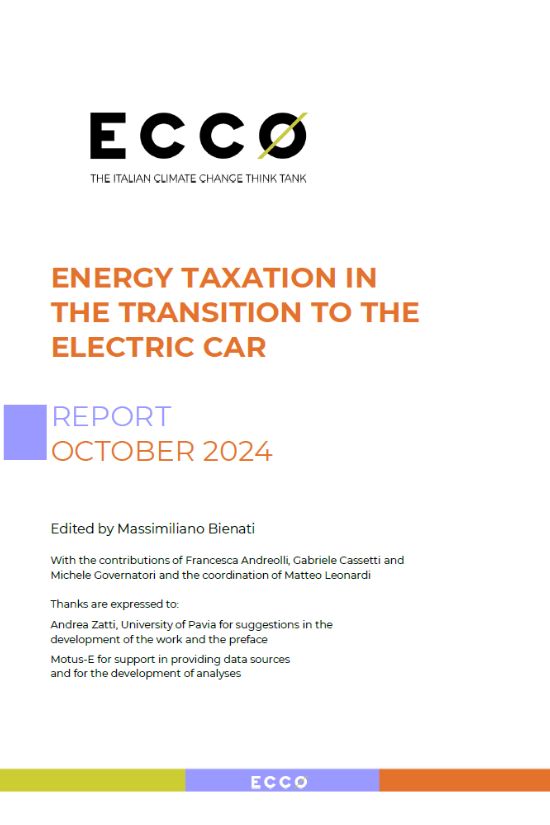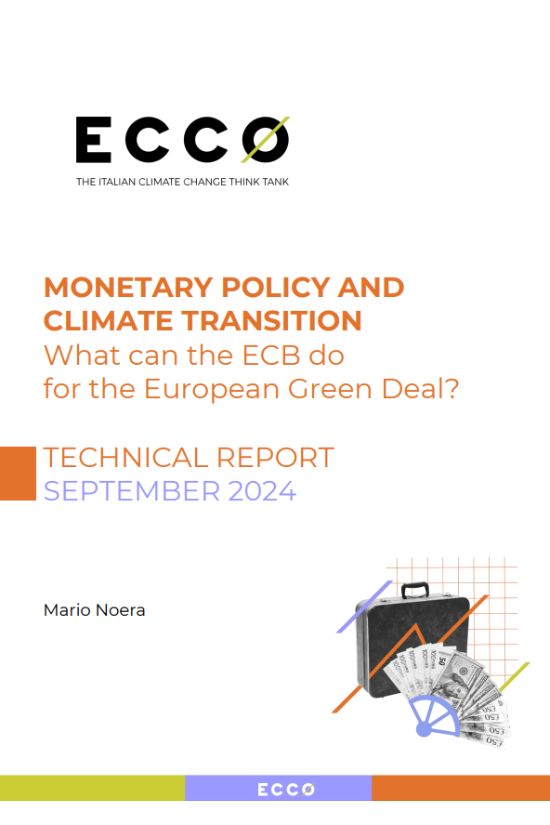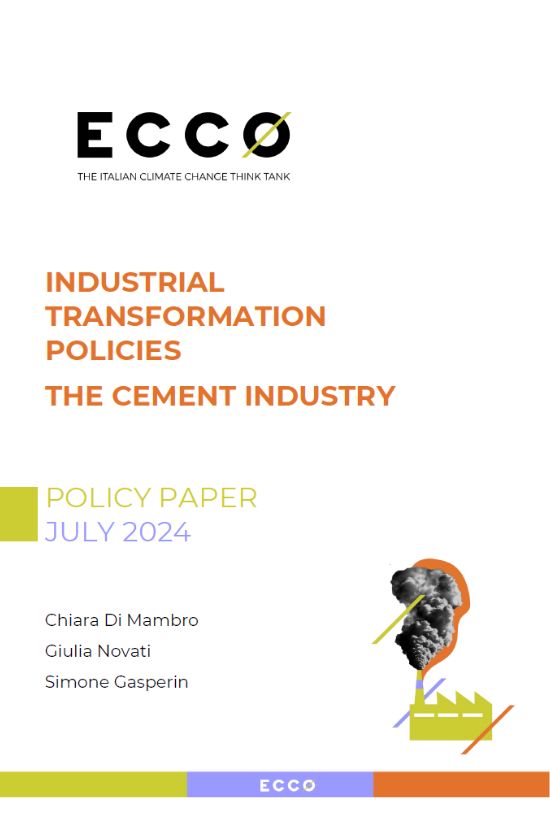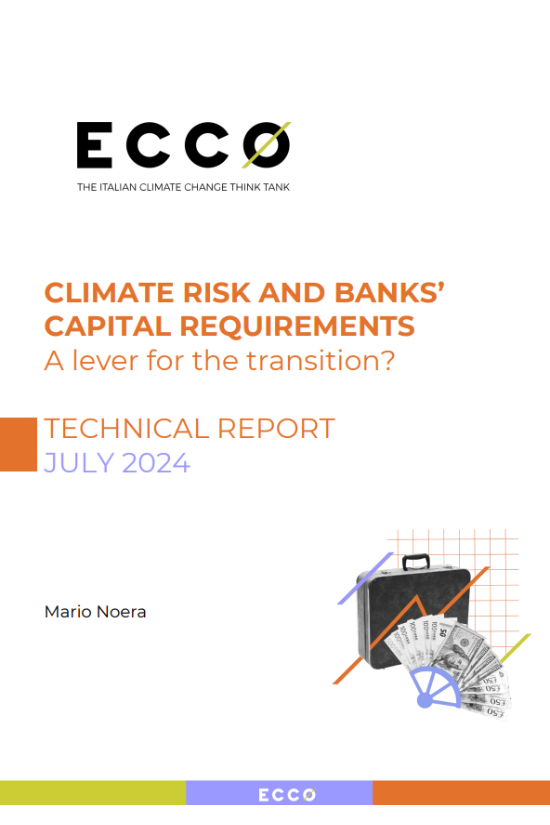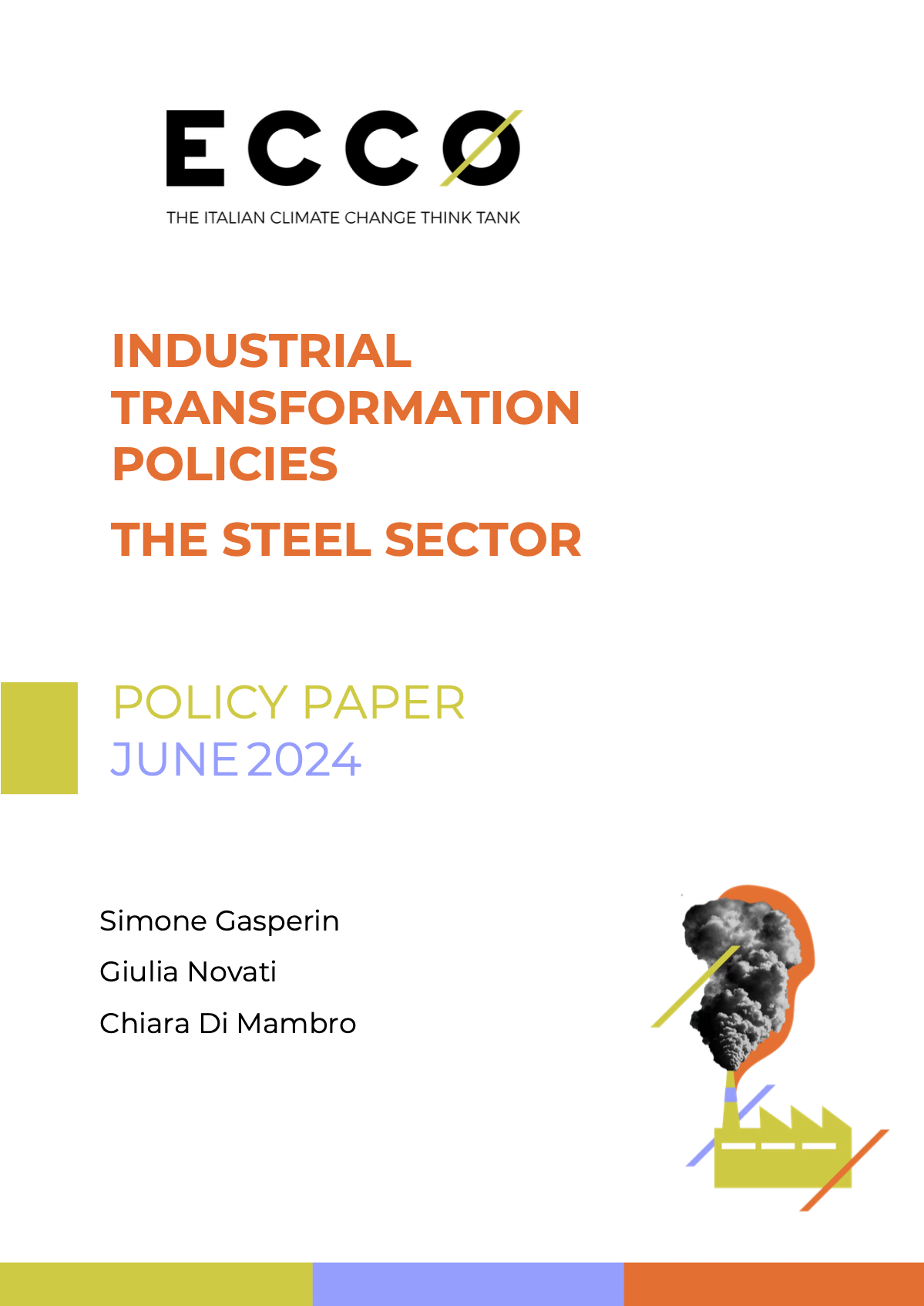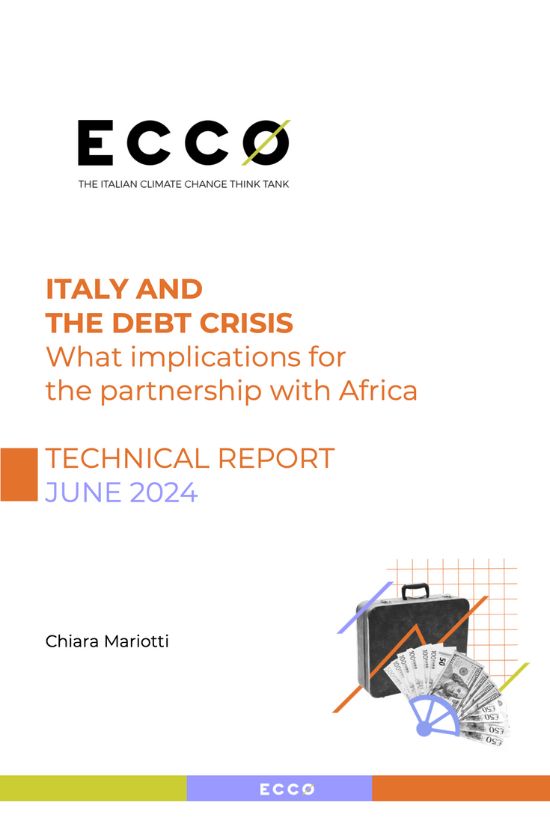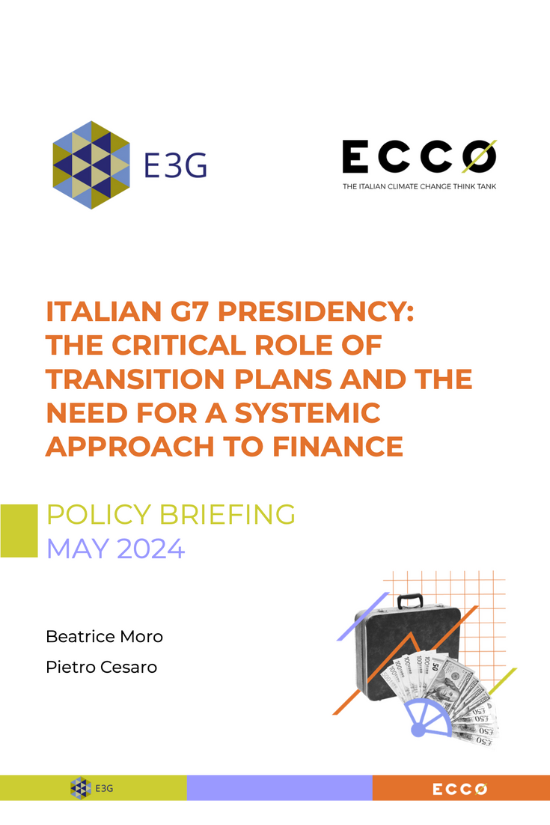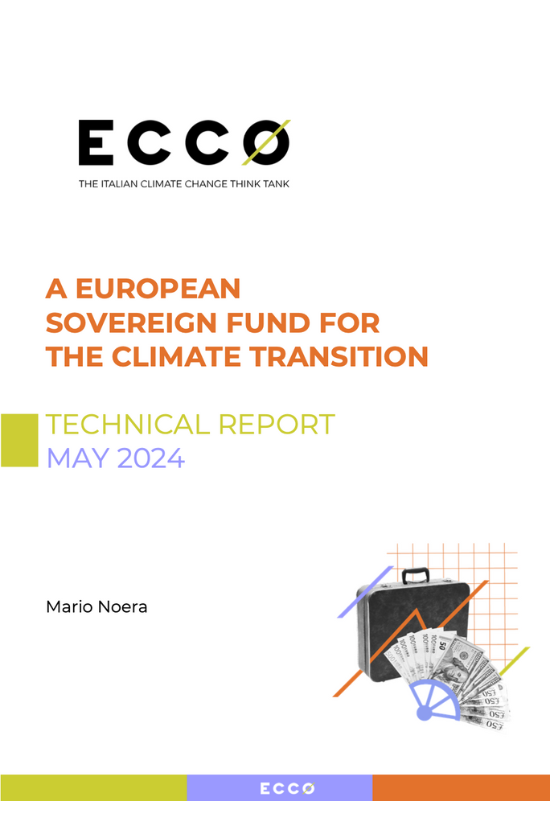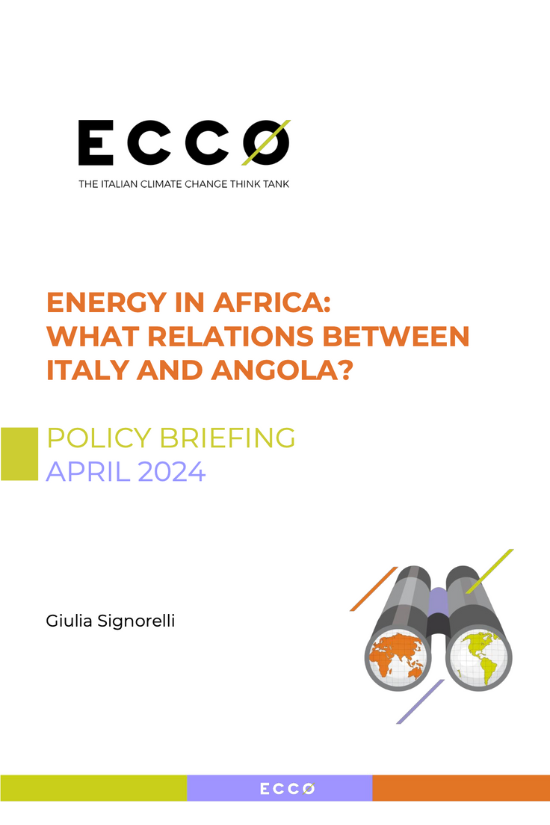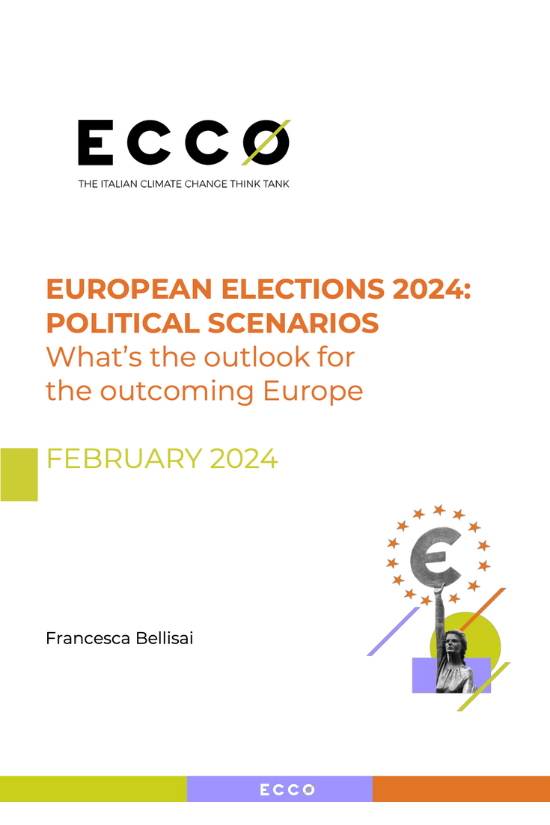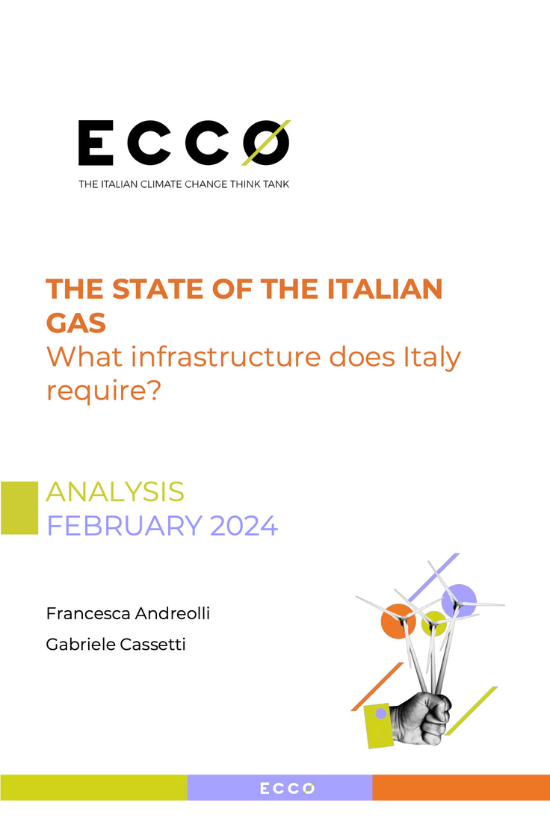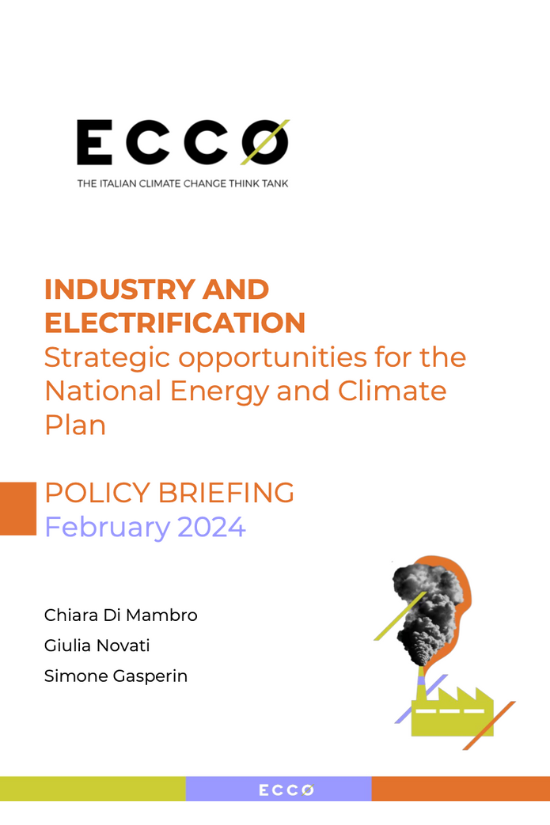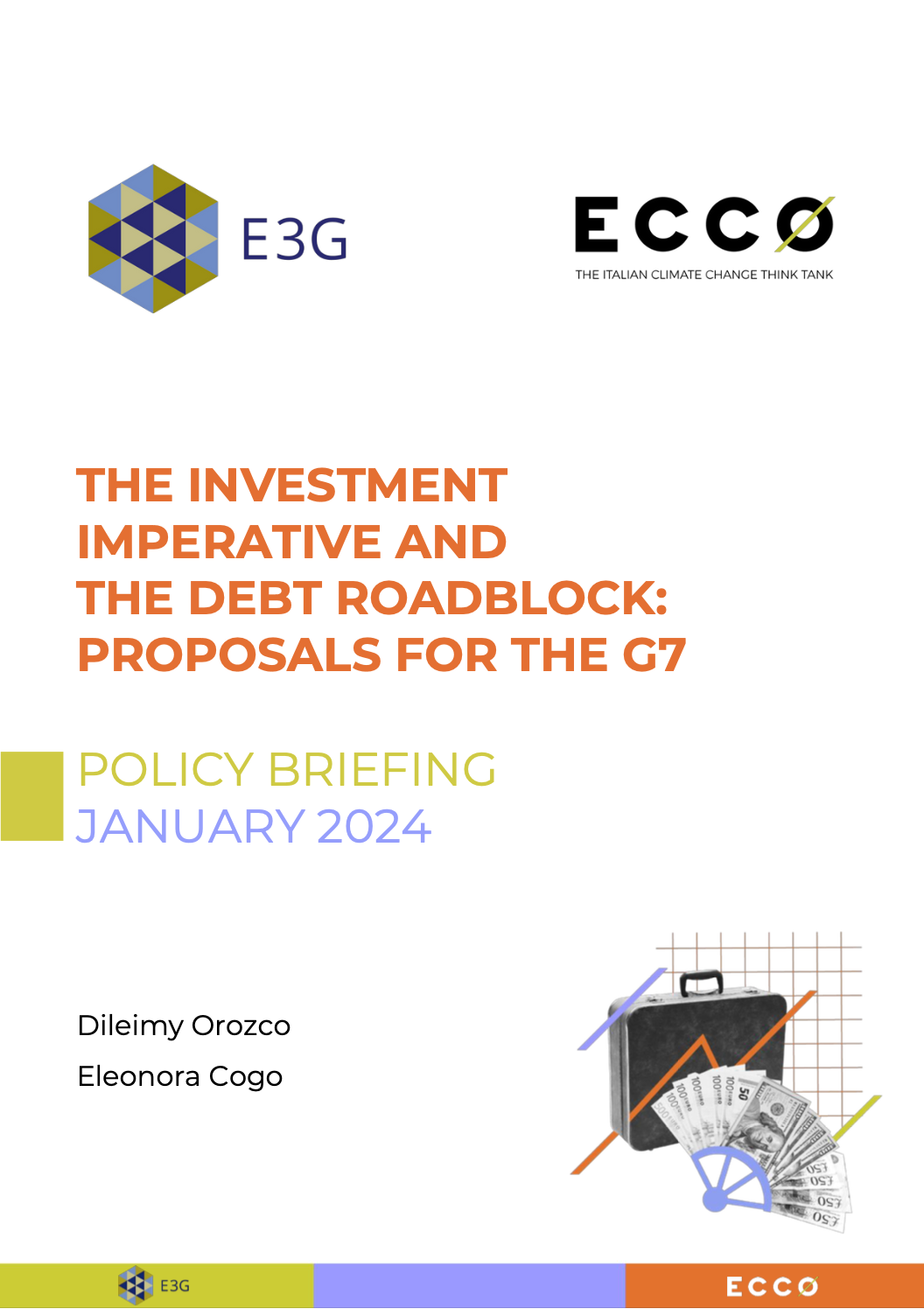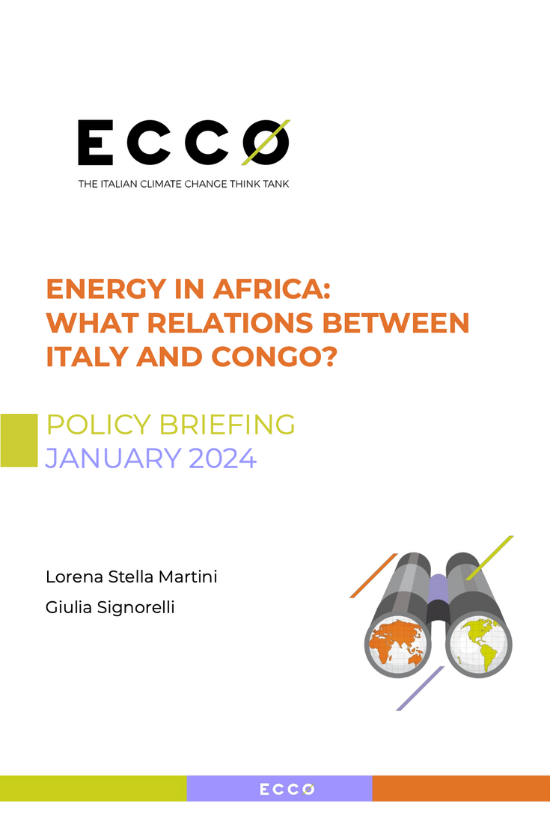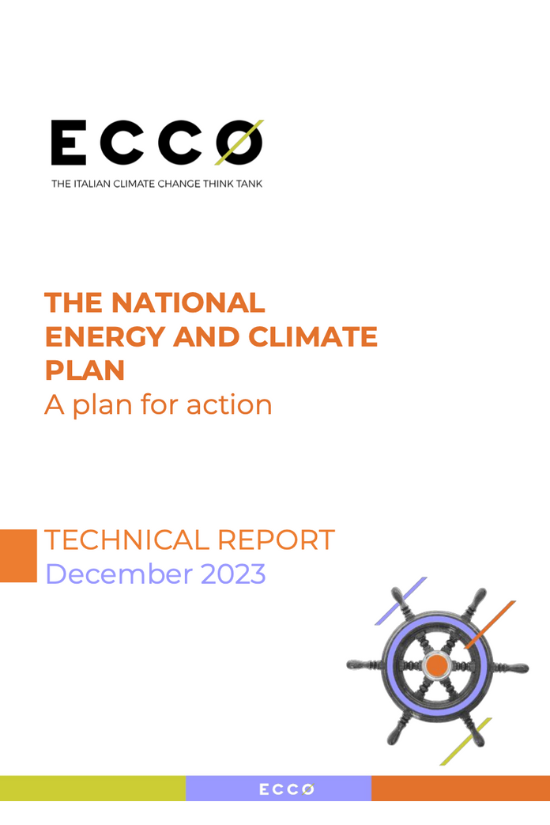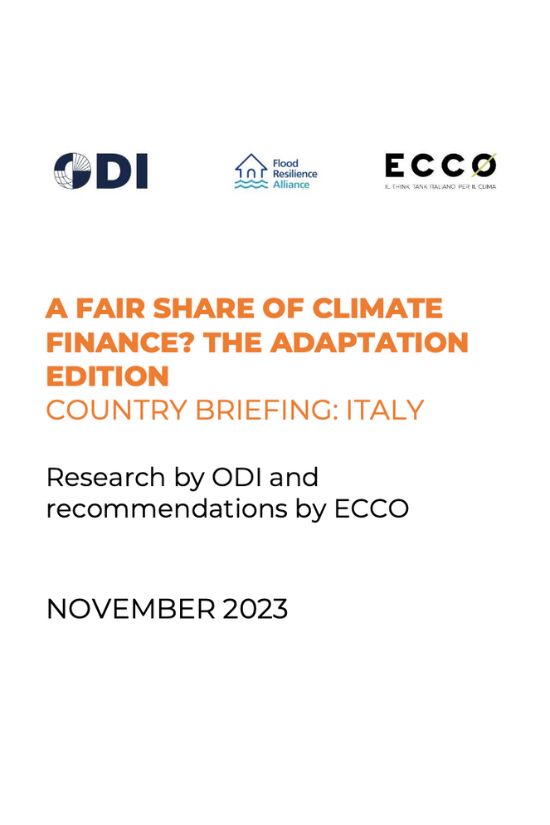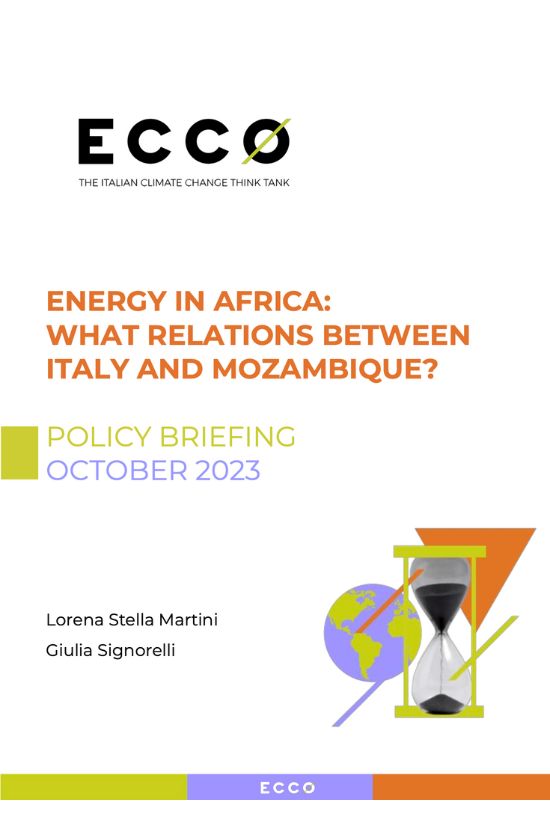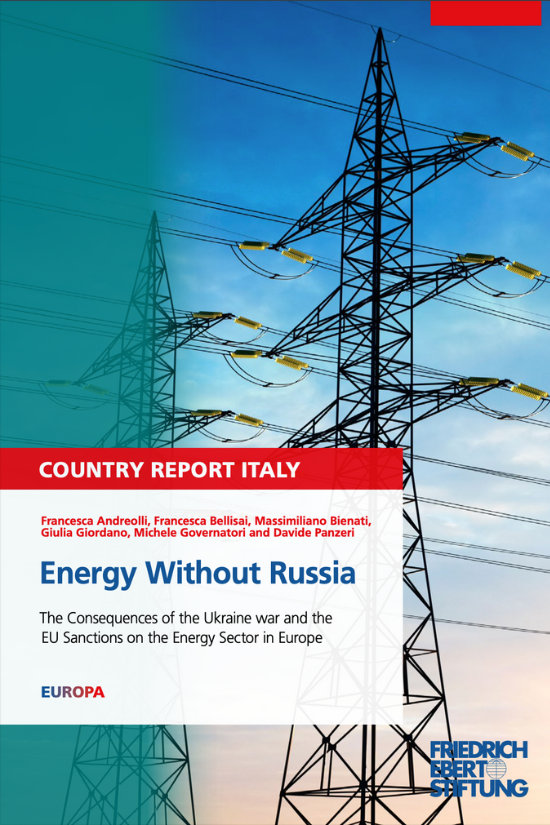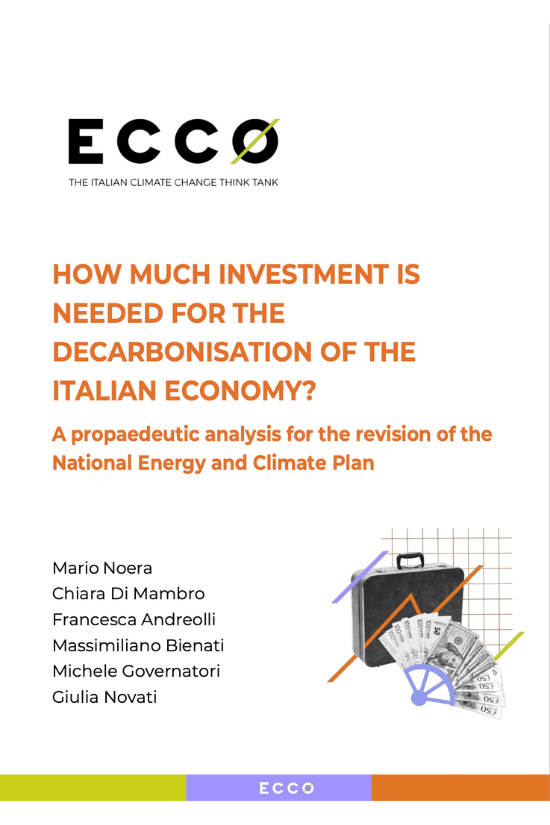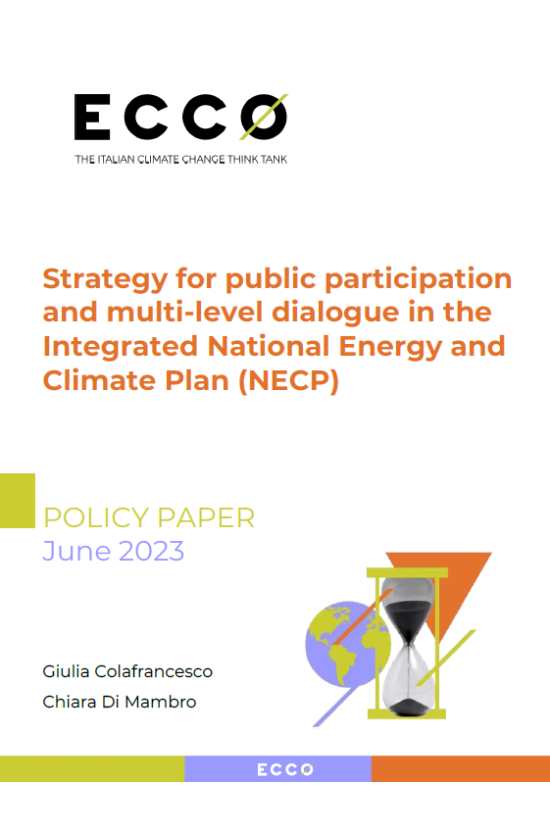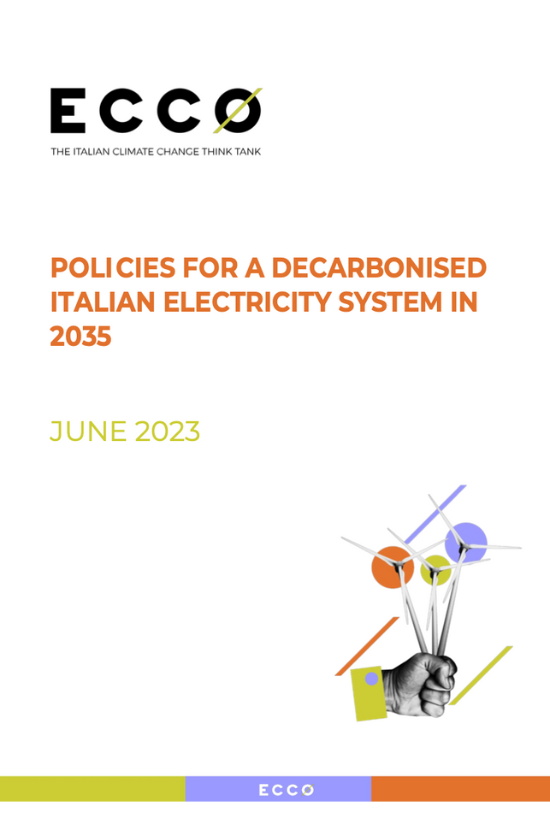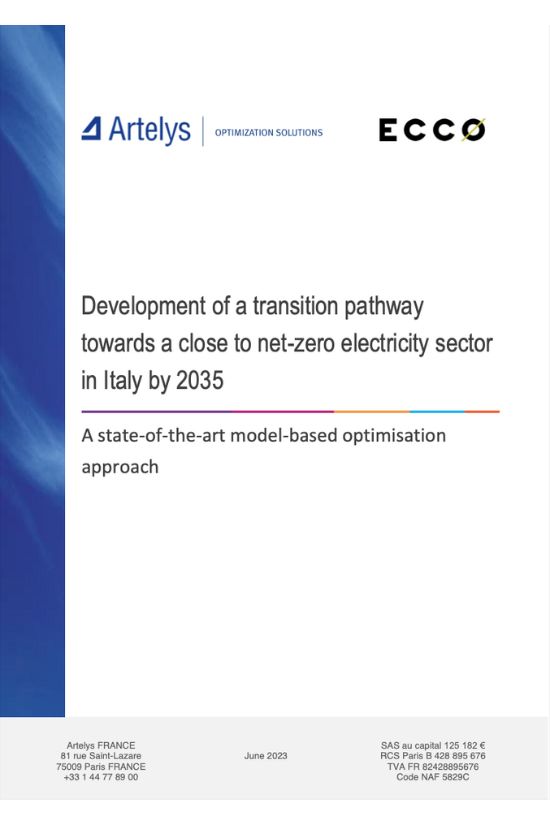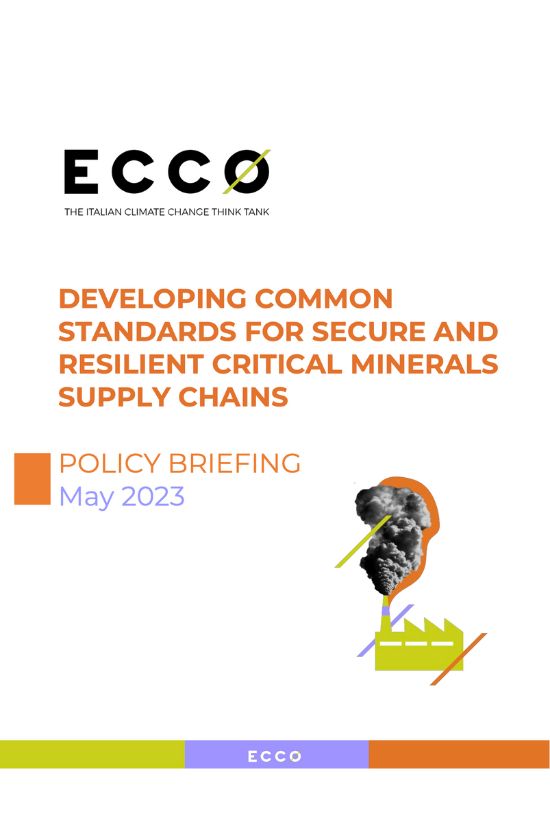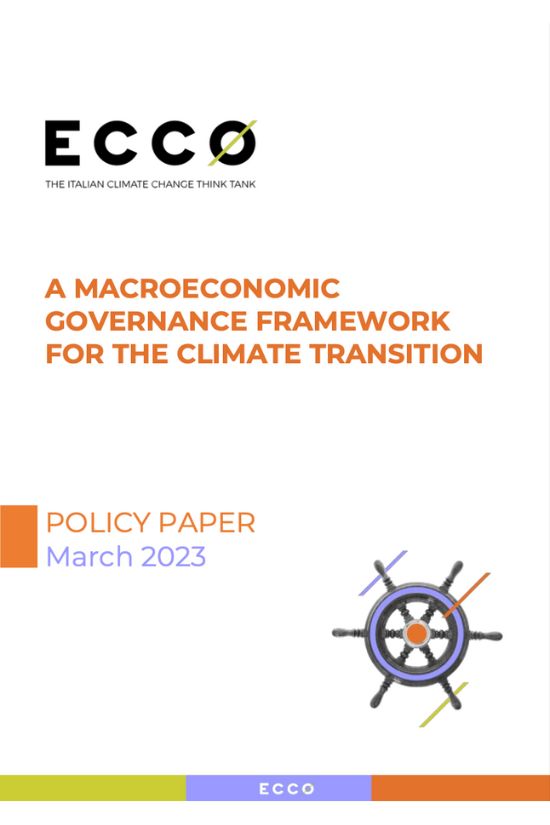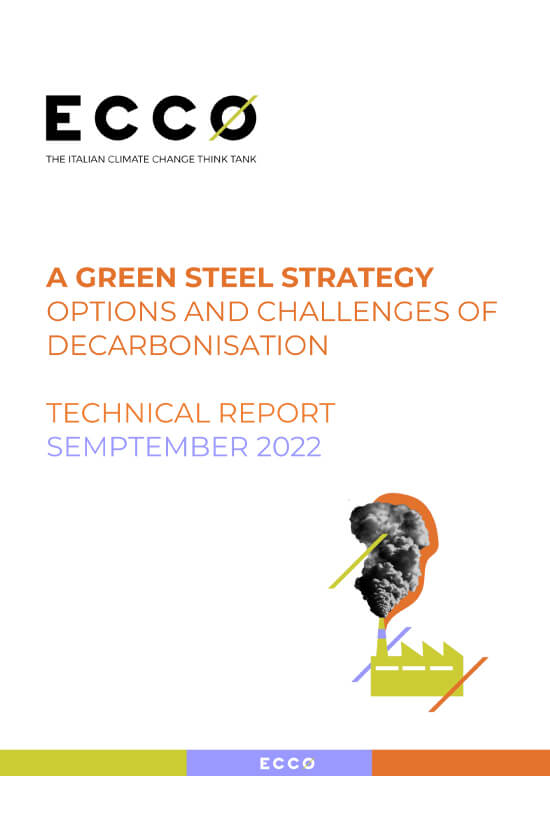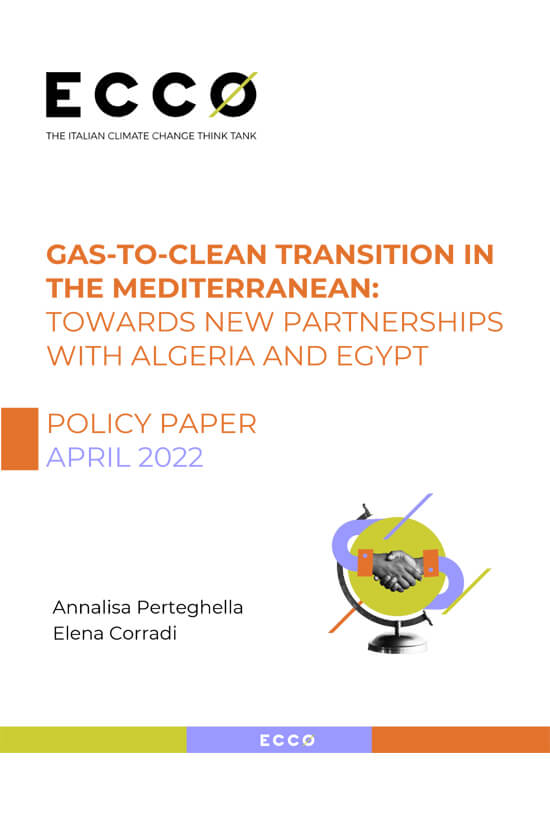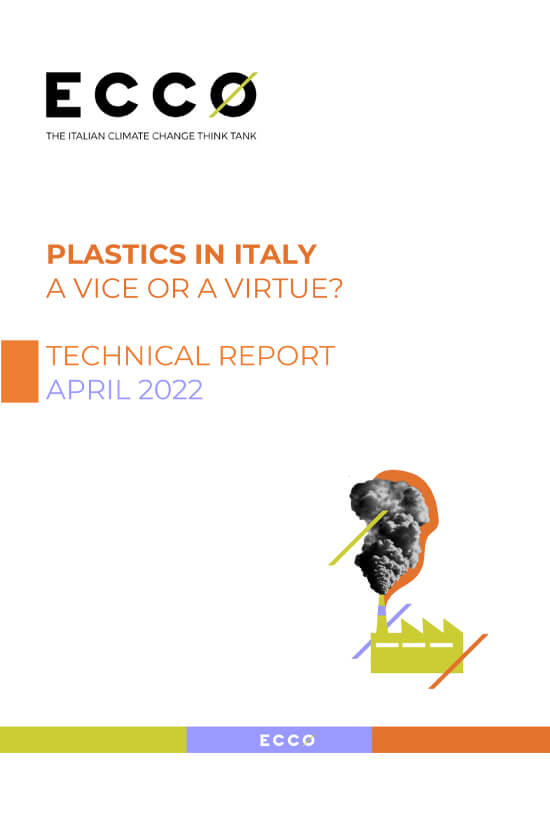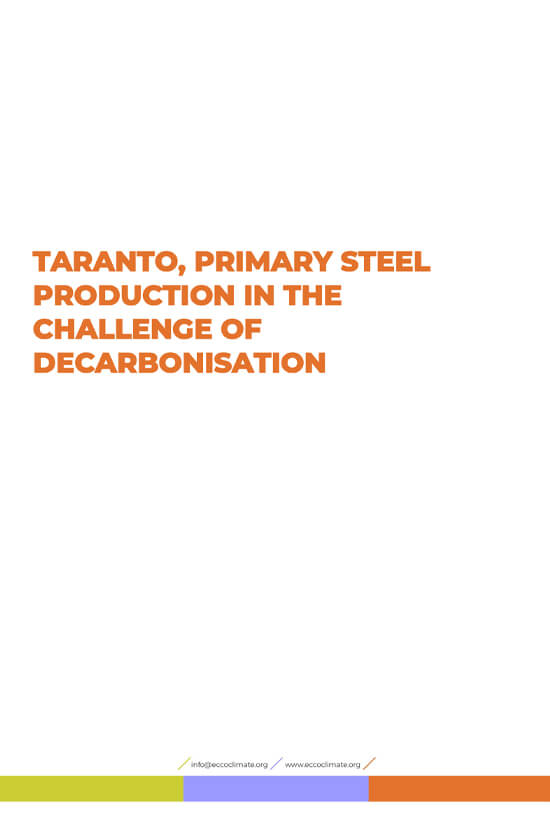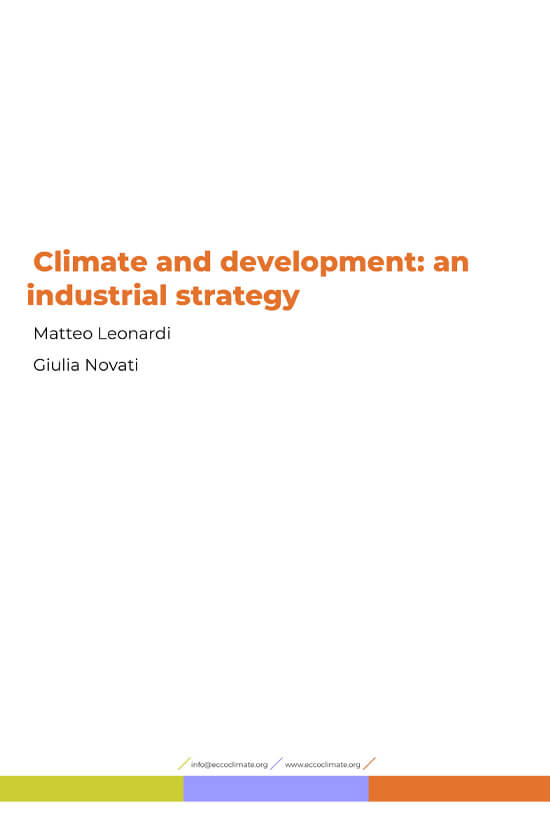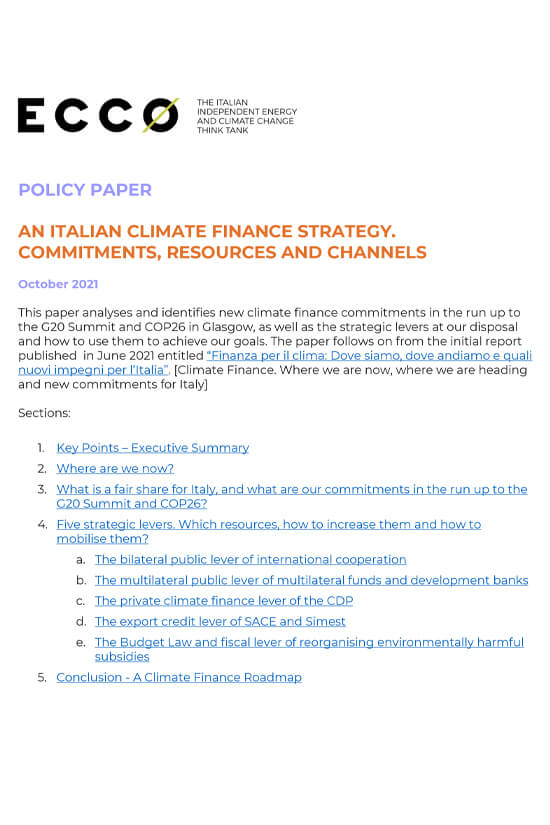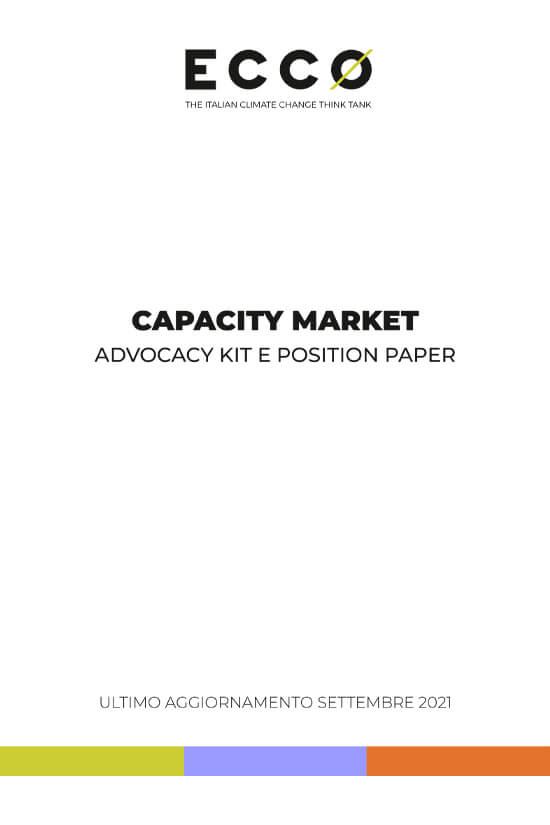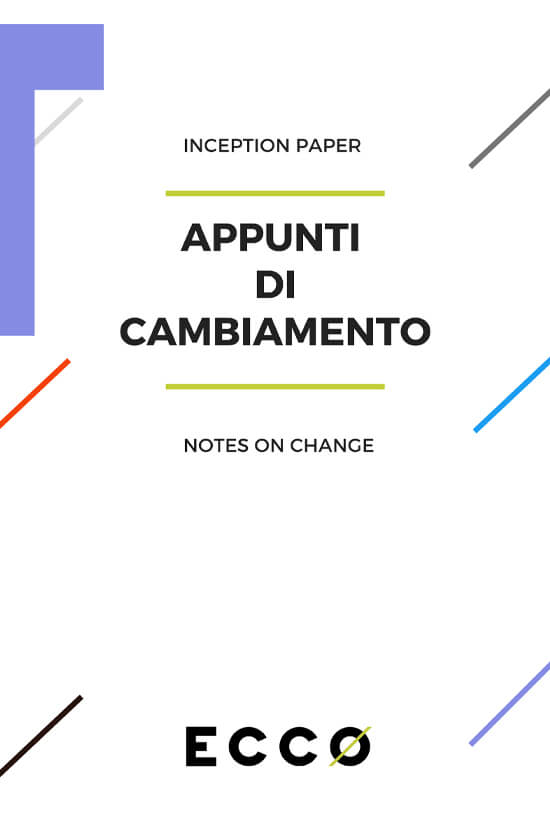Publications
Search
Filters
Authors
/ Alexandra Scott
/ Andrea Ghianda
/ Annalisa Perteghella
/ Beatrice Moro
/ Carolina Bedocchi
/ Caterina Molinari
/ Cecilia Trasi
/ Chiara Di Mambro
/ Chiara Mariotti
/ Chloe Pagliaro
/ Costanza Scano
/ Davide Panzeri
/ ECCO think thank
/ Eleonora Cogo
/ Federico Tassan-Viol
/ Filomena Annunziata
/ Francesca Andreolli
/ Francesca Bellisai
/ Gabriele Cassetti
/ Giovanni D'Amico
/ Giulia Colafrancesco
/ Giulia Giordano
/ Giulia Novati
/ Giulia Signorelli
/ Ilaria Mazzocco
/ Lorena Stella Martini
/ Luca Bergamaschi
/ Luca Iacoboni
/ Mario Noera
/ Marta Lovisolo
/ Massimiliano Bienati
/ Matteo Leonardi
/ Matteo Viola
/ Michele Governatori
/ Nicolas Drago
The Transition Plans published by Italy’s leading oil and gas companies exhibit significant shortcomings, particularly in the quantitative analysis of risks, the planned reduction in hydrocarbon production, and transparency around geographic and regulatory dependencies. For these plans to be credible, they must go beyond simple reporting, incorporating rigorous analysis and a clear governance strategy that reduces uncertainty and decisively channels investment toward truly sustainable solutions.
This policy brief explores the evolving nexus between energy security and energy transition within Italy’s foreign policy towards North Africa, providing recommendations on how Italy can play a leading role – including at a European level – in promoting the energy transition in the Mediterranean region through its relations with North African countries, both at a bilateral and multilateral level.
In this paper, we have assessed how the NRRP is being implemented and its current contribution to the achievement of climate objectives, four years after its adoption. To determine its progress, we have selected and examined a number of climate flagship measures within it, two reforms and four investments relevant to the climate and the energy transition. Based on the findings from our analysis, we have prepared policy recommendations that can inform discussions around the next Multiannual Financial Framework for the 2028-2034 period.
The global automotive market is accelerating towards electric mobility, redefining the competitive dynamics of the sector. A new study commissioned by ECCO and T&E Italia to a group of professors and researchers from the Scuola Superiore Sant’Anna in Pisa and the Enrico Fermi Research Centre in Rome analysed the economic and employment impacts on the national automotive industry of the failure to transition to electric mobility.
Decarbonising the industrial sector requires a targeted approach, with solutions that in most cases must be tailored to meet the needs of each industry. Amongst these, electrification appears to be the most competitive option and the only one capable of aligning decarbonisation objectives with energy security needs. This report presents the results of a specific feasibility study on the electrification of two key sectors in the Italian manufacturing industry: food and textiles.
An analysis of the public reports submitted by Italy to the European Commission between 2014 and 2024 highlights issues with the use of revenues generated from EU ETS auctions. Reviewing the revenues from the ETS auctions reveals significant shortcomings in expenditure planning and fund traceability, with only nine percent of the revenues generated by the system have been allocated to measures addressing climate change.
The drive to innovate that has resulted from the need to meet today’s decarbonisation objectives has
given rise to a new industrial revolution based on clean technology. This policy briefing, which analyses the current situation in relation to public procurement legislation in Europe and Italy, sets out a proposal for revising the minimum environmental criteria for the public procurement of construction materials, which are currently under review.
The debate on technology neutrality versus technology specificity in environmental regulation, particularly in addressing climate change, has flared up again recently. While earlier discussions
centered on decarbonizing electricity generation, primary attention has shifted to the transition to zero-emission mobility. Critics of the CO2 limits complain that they are not sufficiently technology-neutral, thereby restricting abatement options, limiting flexibility for vehicle manufacturers, and leading to unnecessary costs.
This document is a first contribution to support policy makers in finding the right tools to interpret the needs of our society along the process of transition away from fossil fuels, as well as building a consensus based political proposal and a shared framework of reference based on the principles outlined in this document. Further, it opens a season of social studies aimed at exploring social, economic and cultural drivers of behaviours in relation to climate action.
Decarbonising our economies to face the threat of climate change is not an easy task, but we cannot shy away from tackling distributional issues and inequality. A political strategy is necessary to smoothly guide people when faced with the high costs of the transition, a tight timeframe and other barriers. This policy brief serves as a first contribution to finding the right tools to interpret the needs of our society and solve its structural problems along the process of transitioning away from fossil fuels.
The Sixth Assessment Report of the Intergovernmental Panel on Climate Change (IPCC) describes the Mediterranean as a climate change hotspot. Despite relatively low levels of greenhouse gas (GHG) emissions, the effects of global warming are felt more rapidly in this region than anywhere else in the world, with temperatures expected to rise by 20% above the global average.
Azerbaijan COP29’s Presidency has a key role to play in relaunching the ambition of the commitments signed at COP28 in Dubai, including tripling renewable energy capacity and doubling energy efficiency by 2030, but above all, it needs to be decisive in giving a concrete follow-up to the decision to transition away from fossil fuels in energy systems in a fair, orderly and equitable manner. However, the priorities on the agenda outlined by Baku do not include elements to advance the phase out of fossil fuels.
This briefing, authored by ECCO and E3G, takes stock of the EU transition planning framework initiatives and calls for a systemic approach – moving towards a simple and holistic transition planning framework that aligns various governance systems and policy tools within the EU, while ensuring consistency with international climate goals such as the Paris Agreement.
Today, the Mediterranean region's capacity is 90 GW for solar PV and 82 GW for wind . However, the solar and wind potential is estimated at more than 3 TW, meaning that the development of renewables falls short of realising their full potential.
As a party to the Paris Agreement and as a member of the European Union, Italy’s national contribution is linked with that of other member states and, together, they are legally obliged to achieve a 55% reduction in net emissions, compared to 1990 levels, by 2030. The National Energy and Climate Plan (NECP) provides a national framework for countries to implement their emissions reduction commitments. A Plan that openly falls short of some of the objectives set by the Fit for 55 proposals.
The climate crisis and its associated costs have contributed substantially to placing international tax
cooperation high on the international agenda. Taxation can facilitate the energy transition
by disincentivising the use of fossil fuels; create additional resources to tackle climate change;
contribute to climate justice by taxing fossil-intensive activities in the most polluting countries and
allocating revenues to countries most vulnerable to climate change.
This report aims to quantify the evolution of revenue from the fiscal and parafiscal components of energy carriers for road mobility; describe the current fiscal and parafiscal structures of energy carriers for car mobility; and provide options for designing fiscal energy policies aimed at maintaining revenue neutrality without introducing contradictions to climate policies.
The European Central Bank (ECB) and the National Central Banks (NCBs) play a crucial role in the transition towards a net zero economy. This report analyses the actions of the European Central Bank with the aim of identifying ways in which the existing institutional structure and current macroeconomic context could allow it to provide more effective support to the European Green Deal.
This analysis proposes a simplified and aggregated policy framework that’s consistent with the transition towards climate neutrality as well as an outline and assessment of the policies currently in place in the cement industry in Italy, which is the second largest producer of cement in the European Union and a major consumer of cement and concrete.
Empirical evidence shows that capital requirements have a significant influence on both the volume of credit and the level of bank interest rates, and demonstrates that the use of macroprudential capital requirements can play a decisive role in mitigating the risks of transition generated by aggressive decarbonisation policies. These findings therefore show that macroprudential policies are a necessary complement to other climate policies in order to reduce the exposure to risk of financial intermediaries.
The biggest obstacle for zero/low emission or green steel is the simple fact that, within the current market, it isn’t cost-competitive. In light of the complex regulatory framework that has been developed around energy and climate objectives, this policy paper offers a perspective and a conceptual outline for defining a policy framework that’s consistent with the country's emission reduction goals.
In recent years, Italy has demonstrated a growing interest in the African continent, culminating with the Italy-Africa Summit in January 2024. In order to develop a mutually beneficial partnership with Africa, through the Mattei Plan and the leadership earned through the 2024 G7 presidency, Italy must listen and respond to the needs expressed by its African partners, which include a series of reform proposals of the international financial architecture.
G7 finance and climate tracks should align their strategy, find a common position and support a systemic approach to defining and financing national transition plans. Such a systemic approach developed by G7 is critical to give confidence, build trust and inform next set of finance and climate decisions at COP29 and COP30 on the New Collective Quantified Goal on Climate Finance (NCQG) and the Nationally Determined Contributions (NDCs).
Given the imperative to mobilize private investment at the scale required to address climate change, the effective deployment of funding, policies, and frameworks becomes paramount. In this context, it is imperative to place Transition Plans (TPs) at the heart of the G7 finance agenda as primary tools to re-orient and re-design private and public choices towards resilient and sustainable economic systems.
For the European Union, the estimated investment needed to implement the Green Deal would require a total annual investment in the 2021-2030 period of approximately 1,285 billion per year, equal to 8% of GDP of the EU in 2022. The setting up of a European energy and climate fund is therefore legally and technically feasible, and should be a decisive theme of political debate, particularly in light of the upcoming European Parliamentary elections and the renewal of the Commission.
The Mattei Plan offers an opportunity to redefine a new partnership with Angola. However, a partnership based on the exploitation of fossil fuels is not only not economically viable in view of a declining Italian and European demand for oil and gas according to all scenarios, but it is also on a collision course with market trends.
The 2024 European elections will be a key moment for the future of the European Green Deal and the Union's climate policies. The future Commission and the new European Parliament will be able to continue on this path, ensuring that the 2030 targets needed to avert the most disastrous effects of climate change are met. They will also, and most importantly, be able to make the energy transition socioeconomically sustainable.
This analysis aims to identify the minimum gas infrastructure Italy requires to ensure national energy security, after the consequences of the Russian invasion of Ukraine have shaped the European market and considering the progress on climate targets. The study was carried out using an optimisation model that simulates the balance between gas demand and supply in the European market for Italy with a daily granularity for 2030, 2040, and 2050.
The significant contribution to national emissions by the manufacturing sector depends on its reliance on the use of fossil fuels for energy purposes, as well as on emissions that are inherent in certain production processes (e.g. cement, chemicals, etc.). Framing the country’s industrial development prospects within the path of reducing greenhouse gas emissions represents a strategic opportunity. The definition of the National Energy and Climate Plan (NECP) due by next June, is a unique opportunity for action.
This policy briefing, prepared by ECCO and E3G, examines the relationship between debt and climate at a pivotal moment for transforming the international financial architecture and for ensuring finance flows towards climate growth opportunities. Italy can play a key role in shaping a more resilient and sustainable future for Africa through both its G7 Presidency and the Mattei Plan.
An Italy-Congo partnership based on the exploitation of fossil fuels is not the best investment for the country’s economy, as it fuels a vicious cycle of debt, poverty, inequality and corruption and lack of diversification. For Italy, such partnership is not only unprofitable in the face of a declining gas demand under all scenarios, but it would also collide with market new interests. Insisting on gas in the Italy-Congo relationship increasingly ties Italy’s foreign policy to gas policy, and away from its climate commitments.
The NECP provides a framework for EU Member States to implement their emission reduction commitments for a ten-year period. These must be aligned with the Paris Agreement. The current revision of the NECP must be built on the target of reducing emissions by at least 55% by 2030, compared to 1990 levels, as detailed in the Fit for 55 package. The NECP should thus include the strategy to align with the EU’s collective target for 2030, as well as achieving net-zero emissions by 2050.
The report developed by ODI to which this briefing refers - 'A fair share of climate finance? The adaptation edition' - looks at the climate finance provided in 2021 to evaluate each country’s progress against the $100 billion goal. In addition, we produce new evidence to evaluate each country’s adaptation finance provision against the aim of at least doubling adaptation finance from 2019 levels by 2025, which we set at $40 billion – double the $20 billion reported in 2019.
The revival of relations between Italy and African countries needs to be contextualized within a framework of renewed interest in the African continent. In this framework, the Meloni government is working on a new strategic project for Africa, known as “Mattei Plan”, which aims at establishing equal and mutually beneficial relations with African partners, in a “non-predatory” context. Against this backdrop, Mozambique represents an extremely relevant partner for Rome, drawing on solid relations at both a governmental and civil society level.
The Russian invasion of Ukraine and the energy crisis which came in its wake have produced significant impacts on the energy sector in many EU countries, including Italy. This study shows that customers reacted to high gas prices by reducing consumption over and above the European target of 15%, with gas consumption dropping 18.6% from August 2022 to January 2023, in the absence of structural measures.
A propaedeutic analysis for the revision of the National Energy and Climate Plan (NECP). Estimates of the total investment that Italy needs in order to align with the new European Fit-for-55 targets range between an average of EUR 122 and EUR 134 billion per year. The additional investments needed are therefore EUR 30-42 billion per year higher than estimated in the NECP (2019), and 2-3 times higher than the amount allocated in the NRRP for the green transition in the 2021-26 five-year period (an average of EUR 14.4 billion per year).
Italy, like other European countries, has been called upon to structure the process of updating the Integrated National Energy and Climate Plan (NECP) through public participation and effective multi-level dialogue, as envisaged by the Energy Union Governance Regulations and reiterated by the Commission’s Guidelines for revision of the Plan. This work shows the availability of resources, time and knowledge to make the NECP a plan that reflects the needs of the country, through a participation-based path.
The project aims to show the production technology, enabling technology and enabling policies required to comply with Italian energy regulations that an essentially decarbonised electricity system in 2035 will need to have in place in 2030 and 2035. The system will be the most economical of all those guaranteeing decarbonisation and security while complying with certain hypotheses.
This report includes assumptions and results of the simulations regarding an essentially decarbonised power system by 2035, with an intermediate step to 2030. This document contains proposals mainly in terms of production and technologies.
The increasing production and the pace of penetration of clean technologies required to a radical transformation of the global energy system critically depend on the availability of critical minerals.
The high geographic fragmentation of mining activities and the Asian dominance in the processing and refining stages of critical minerals require a progressive diversifying, reshaping and strengthening of the global supply chain structure in order to manage supply risks.
The ecological transition is crucial not only for achieving the climate goals contained in the European Green Deal, but also the innovation and industrial competitiveness goals of the Green Deal Industrial Plan. The transition is therefore a prerequisite for growth and thus for debt sustainability.
The aim of this paper is to provide an overview of the technologies available for the decarbonization of the steel sector in Italy and to identify a decarbonization path in response, on the one hand, to the risks of de-industrialization and, on the other, to the risks of lock-in of investments in supply chains that are not compatible with the net zero emissions perspective.
In this new study we analyze the European strategy for emancipation from Russian gas. Solutions involve the Mediterranean, but strategic partnerships are needed with Algeria and Egypt not the creation of other fragile dependencies that also risk undermining the achievement of climate goals.
The report analyzes critical issues, solutions and future scenarios to promote a decarbonization of the plastics supply chain that will allow the sector to remain competitive and, at the same time, remain aligned with the 2050 climate neutrality goals.
Italy is the second largest steel producer in Europe and the 11th largest in the world. In 2019, 23.2 Mt of steel was produced at the Acciaierie d'Italia plant in Taranto (Ex Ilva). In this report we take an in-depth look at steel production in Italy, analyzing the specific case of the only Italian plant that currently produces it, namely the Taranto steel plant
Full decarbonization by 2050 requires the development of new industrial strategies aligned with climate goals. In this study, we delve into emission reduction technology options and suggest industrial decarbonization strategies to address climate change through the levers of innovation, welfare, and employment.
Ahead of the G20 Heads of State and Government Summit in Rome and COP26 in Glasgow, we analysed and identified Italy's climate finance commitments.
Una breve introduzione al capacity market italiano e le ragioni per cui, a nostro parere, è incoerente e distorsivo con la transizione. Un kit, organizzato per punti, con le nostre proposte di modifica e i nostri suggerimenti in risposta alla consultazione Terna del maggio 2021.
This document outlines ECCO’s departure point and our initial horizon. These "notes on change" will be strengthened by the ideas and resources our supports provide.
ECCO is a free, independent and evolving space for thought and action.
The Transition Plans published by Italy’s leading oil and gas companies exhibit significant shortcomings, particularly in the quantitative analysis of risks, the planned reduction in hydrocarbon production, and transparency around geographic and regulatory dependencies. For these plans to be credible, they must go beyond simple reporting, incorporating rigorous analysis and a clear governance strategy that reduces uncertainty and decisively channels investment toward truly sustainable solutions.
This policy brief explores the evolving nexus between energy security and energy transition within Italy’s foreign policy towards North Africa, providing recommendations on how Italy can play a leading role – including at a European level – in promoting the energy transition in the Mediterranean region through its relations with North African countries, both at a bilateral and multilateral level.
In this paper, we have assessed how the NRRP is being implemented and its current contribution to the achievement of climate objectives, four years after its adoption. To determine its progress, we have selected and examined a number of climate flagship measures within it, two reforms and four investments relevant to the climate and the energy transition. Based on the findings from our analysis, we have prepared policy recommendations that can inform discussions around the next Multiannual Financial Framework for the 2028-2034 period.
The global automotive market is accelerating towards electric mobility, redefining the competitive dynamics of the sector. A new study commissioned by ECCO and T&E Italia to a group of professors and researchers from the Scuola Superiore Sant’Anna in Pisa and the Enrico Fermi Research Centre in Rome analysed the economic and employment impacts on the national automotive industry of the failure to transition to electric mobility.
Decarbonising the industrial sector requires a targeted approach, with solutions that in most cases must be tailored to meet the needs of each industry. Amongst these, electrification appears to be the most competitive option and the only one capable of aligning decarbonisation objectives with energy security needs. This report presents the results of a specific feasibility study on the electrification of two key sectors in the Italian manufacturing industry: food and textiles.
An analysis of the public reports submitted by Italy to the European Commission between 2014 and 2024 highlights issues with the use of revenues generated from EU ETS auctions. Reviewing the revenues from the ETS auctions reveals significant shortcomings in expenditure planning and fund traceability, with only nine percent of the revenues generated by the system have been allocated to measures addressing climate change.
The drive to innovate that has resulted from the need to meet today’s decarbonisation objectives has
given rise to a new industrial revolution based on clean technology. This policy briefing, which analyses the current situation in relation to public procurement legislation in Europe and Italy, sets out a proposal for revising the minimum environmental criteria for the public procurement of construction materials, which are currently under review.
The debate on technology neutrality versus technology specificity in environmental regulation, particularly in addressing climate change, has flared up again recently. While earlier discussions
centered on decarbonizing electricity generation, primary attention has shifted to the transition to zero-emission mobility. Critics of the CO2 limits complain that they are not sufficiently technology-neutral, thereby restricting abatement options, limiting flexibility for vehicle manufacturers, and leading to unnecessary costs.
This document is a first contribution to support policy makers in finding the right tools to interpret the needs of our society along the process of transition away from fossil fuels, as well as building a consensus based political proposal and a shared framework of reference based on the principles outlined in this document. Further, it opens a season of social studies aimed at exploring social, economic and cultural drivers of behaviours in relation to climate action.
Decarbonising our economies to face the threat of climate change is not an easy task, but we cannot shy away from tackling distributional issues and inequality. A political strategy is necessary to smoothly guide people when faced with the high costs of the transition, a tight timeframe and other barriers. This policy brief serves as a first contribution to finding the right tools to interpret the needs of our society and solve its structural problems along the process of transitioning away from fossil fuels.
The Sixth Assessment Report of the Intergovernmental Panel on Climate Change (IPCC) describes the Mediterranean as a climate change hotspot. Despite relatively low levels of greenhouse gas (GHG) emissions, the effects of global warming are felt more rapidly in this region than anywhere else in the world, with temperatures expected to rise by 20% above the global average.
Azerbaijan COP29’s Presidency has a key role to play in relaunching the ambition of the commitments signed at COP28 in Dubai, including tripling renewable energy capacity and doubling energy efficiency by 2030, but above all, it needs to be decisive in giving a concrete follow-up to the decision to transition away from fossil fuels in energy systems in a fair, orderly and equitable manner. However, the priorities on the agenda outlined by Baku do not include elements to advance the phase out of fossil fuels.
This briefing, authored by ECCO and E3G, takes stock of the EU transition planning framework initiatives and calls for a systemic approach – moving towards a simple and holistic transition planning framework that aligns various governance systems and policy tools within the EU, while ensuring consistency with international climate goals such as the Paris Agreement.
Today, the Mediterranean region's capacity is 90 GW for solar PV and 82 GW for wind . However, the solar and wind potential is estimated at more than 3 TW, meaning that the development of renewables falls short of realising their full potential.
As a party to the Paris Agreement and as a member of the European Union, Italy’s national contribution is linked with that of other member states and, together, they are legally obliged to achieve a 55% reduction in net emissions, compared to 1990 levels, by 2030. The National Energy and Climate Plan (NECP) provides a national framework for countries to implement their emissions reduction commitments. A Plan that openly falls short of some of the objectives set by the Fit for 55 proposals.
The climate crisis and its associated costs have contributed substantially to placing international tax
cooperation high on the international agenda. Taxation can facilitate the energy transition
by disincentivising the use of fossil fuels; create additional resources to tackle climate change;
contribute to climate justice by taxing fossil-intensive activities in the most polluting countries and
allocating revenues to countries most vulnerable to climate change.
This report aims to quantify the evolution of revenue from the fiscal and parafiscal components of energy carriers for road mobility; describe the current fiscal and parafiscal structures of energy carriers for car mobility; and provide options for designing fiscal energy policies aimed at maintaining revenue neutrality without introducing contradictions to climate policies.
The European Central Bank (ECB) and the National Central Banks (NCBs) play a crucial role in the transition towards a net zero economy. This report analyses the actions of the European Central Bank with the aim of identifying ways in which the existing institutional structure and current macroeconomic context could allow it to provide more effective support to the European Green Deal.
This analysis proposes a simplified and aggregated policy framework that’s consistent with the transition towards climate neutrality as well as an outline and assessment of the policies currently in place in the cement industry in Italy, which is the second largest producer of cement in the European Union and a major consumer of cement and concrete.
Empirical evidence shows that capital requirements have a significant influence on both the volume of credit and the level of bank interest rates, and demonstrates that the use of macroprudential capital requirements can play a decisive role in mitigating the risks of transition generated by aggressive decarbonisation policies. These findings therefore show that macroprudential policies are a necessary complement to other climate policies in order to reduce the exposure to risk of financial intermediaries.
The biggest obstacle for zero/low emission or green steel is the simple fact that, within the current market, it isn’t cost-competitive. In light of the complex regulatory framework that has been developed around energy and climate objectives, this policy paper offers a perspective and a conceptual outline for defining a policy framework that’s consistent with the country's emission reduction goals.
In recent years, Italy has demonstrated a growing interest in the African continent, culminating with the Italy-Africa Summit in January 2024. In order to develop a mutually beneficial partnership with Africa, through the Mattei Plan and the leadership earned through the 2024 G7 presidency, Italy must listen and respond to the needs expressed by its African partners, which include a series of reform proposals of the international financial architecture.
G7 finance and climate tracks should align their strategy, find a common position and support a systemic approach to defining and financing national transition plans. Such a systemic approach developed by G7 is critical to give confidence, build trust and inform next set of finance and climate decisions at COP29 and COP30 on the New Collective Quantified Goal on Climate Finance (NCQG) and the Nationally Determined Contributions (NDCs).
Given the imperative to mobilize private investment at the scale required to address climate change, the effective deployment of funding, policies, and frameworks becomes paramount. In this context, it is imperative to place Transition Plans (TPs) at the heart of the G7 finance agenda as primary tools to re-orient and re-design private and public choices towards resilient and sustainable economic systems.
For the European Union, the estimated investment needed to implement the Green Deal would require a total annual investment in the 2021-2030 period of approximately 1,285 billion per year, equal to 8% of GDP of the EU in 2022. The setting up of a European energy and climate fund is therefore legally and technically feasible, and should be a decisive theme of political debate, particularly in light of the upcoming European Parliamentary elections and the renewal of the Commission.
The Mattei Plan offers an opportunity to redefine a new partnership with Angola. However, a partnership based on the exploitation of fossil fuels is not only not economically viable in view of a declining Italian and European demand for oil and gas according to all scenarios, but it is also on a collision course with market trends.
The 2024 European elections will be a key moment for the future of the European Green Deal and the Union's climate policies. The future Commission and the new European Parliament will be able to continue on this path, ensuring that the 2030 targets needed to avert the most disastrous effects of climate change are met. They will also, and most importantly, be able to make the energy transition socioeconomically sustainable.
This analysis aims to identify the minimum gas infrastructure Italy requires to ensure national energy security, after the consequences of the Russian invasion of Ukraine have shaped the European market and considering the progress on climate targets. The study was carried out using an optimisation model that simulates the balance between gas demand and supply in the European market for Italy with a daily granularity for 2030, 2040, and 2050.
The significant contribution to national emissions by the manufacturing sector depends on its reliance on the use of fossil fuels for energy purposes, as well as on emissions that are inherent in certain production processes (e.g. cement, chemicals, etc.). Framing the country’s industrial development prospects within the path of reducing greenhouse gas emissions represents a strategic opportunity. The definition of the National Energy and Climate Plan (NECP) due by next June, is a unique opportunity for action.
This policy briefing, prepared by ECCO and E3G, examines the relationship between debt and climate at a pivotal moment for transforming the international financial architecture and for ensuring finance flows towards climate growth opportunities. Italy can play a key role in shaping a more resilient and sustainable future for Africa through both its G7 Presidency and the Mattei Plan.
An Italy-Congo partnership based on the exploitation of fossil fuels is not the best investment for the country’s economy, as it fuels a vicious cycle of debt, poverty, inequality and corruption and lack of diversification. For Italy, such partnership is not only unprofitable in the face of a declining gas demand under all scenarios, but it would also collide with market new interests. Insisting on gas in the Italy-Congo relationship increasingly ties Italy’s foreign policy to gas policy, and away from its climate commitments.
The NECP provides a framework for EU Member States to implement their emission reduction commitments for a ten-year period. These must be aligned with the Paris Agreement. The current revision of the NECP must be built on the target of reducing emissions by at least 55% by 2030, compared to 1990 levels, as detailed in the Fit for 55 package. The NECP should thus include the strategy to align with the EU’s collective target for 2030, as well as achieving net-zero emissions by 2050.
The report developed by ODI to which this briefing refers - 'A fair share of climate finance? The adaptation edition' - looks at the climate finance provided in 2021 to evaluate each country’s progress against the $100 billion goal. In addition, we produce new evidence to evaluate each country’s adaptation finance provision against the aim of at least doubling adaptation finance from 2019 levels by 2025, which we set at $40 billion – double the $20 billion reported in 2019.
The revival of relations between Italy and African countries needs to be contextualized within a framework of renewed interest in the African continent. In this framework, the Meloni government is working on a new strategic project for Africa, known as “Mattei Plan”, which aims at establishing equal and mutually beneficial relations with African partners, in a “non-predatory” context. Against this backdrop, Mozambique represents an extremely relevant partner for Rome, drawing on solid relations at both a governmental and civil society level.
The Russian invasion of Ukraine and the energy crisis which came in its wake have produced significant impacts on the energy sector in many EU countries, including Italy. This study shows that customers reacted to high gas prices by reducing consumption over and above the European target of 15%, with gas consumption dropping 18.6% from August 2022 to January 2023, in the absence of structural measures.
A propaedeutic analysis for the revision of the National Energy and Climate Plan (NECP). Estimates of the total investment that Italy needs in order to align with the new European Fit-for-55 targets range between an average of EUR 122 and EUR 134 billion per year. The additional investments needed are therefore EUR 30-42 billion per year higher than estimated in the NECP (2019), and 2-3 times higher than the amount allocated in the NRRP for the green transition in the 2021-26 five-year period (an average of EUR 14.4 billion per year).
Italy, like other European countries, has been called upon to structure the process of updating the Integrated National Energy and Climate Plan (NECP) through public participation and effective multi-level dialogue, as envisaged by the Energy Union Governance Regulations and reiterated by the Commission’s Guidelines for revision of the Plan. This work shows the availability of resources, time and knowledge to make the NECP a plan that reflects the needs of the country, through a participation-based path.
The project aims to show the production technology, enabling technology and enabling policies required to comply with Italian energy regulations that an essentially decarbonised electricity system in 2035 will need to have in place in 2030 and 2035. The system will be the most economical of all those guaranteeing decarbonisation and security while complying with certain hypotheses.
This report includes assumptions and results of the simulations regarding an essentially decarbonised power system by 2035, with an intermediate step to 2030. This document contains proposals mainly in terms of production and technologies.
The increasing production and the pace of penetration of clean technologies required to a radical transformation of the global energy system critically depend on the availability of critical minerals.
The high geographic fragmentation of mining activities and the Asian dominance in the processing and refining stages of critical minerals require a progressive diversifying, reshaping and strengthening of the global supply chain structure in order to manage supply risks.
The ecological transition is crucial not only for achieving the climate goals contained in the European Green Deal, but also the innovation and industrial competitiveness goals of the Green Deal Industrial Plan. The transition is therefore a prerequisite for growth and thus for debt sustainability.
The aim of this paper is to provide an overview of the technologies available for the decarbonization of the steel sector in Italy and to identify a decarbonization path in response, on the one hand, to the risks of de-industrialization and, on the other, to the risks of lock-in of investments in supply chains that are not compatible with the net zero emissions perspective.
In this new study we analyze the European strategy for emancipation from Russian gas. Solutions involve the Mediterranean, but strategic partnerships are needed with Algeria and Egypt not the creation of other fragile dependencies that also risk undermining the achievement of climate goals.
The report analyzes critical issues, solutions and future scenarios to promote a decarbonization of the plastics supply chain that will allow the sector to remain competitive and, at the same time, remain aligned with the 2050 climate neutrality goals.
Italy is the second largest steel producer in Europe and the 11th largest in the world. In 2019, 23.2 Mt of steel was produced at the Acciaierie d'Italia plant in Taranto (Ex Ilva). In this report we take an in-depth look at steel production in Italy, analyzing the specific case of the only Italian plant that currently produces it, namely the Taranto steel plant
Full decarbonization by 2050 requires the development of new industrial strategies aligned with climate goals. In this study, we delve into emission reduction technology options and suggest industrial decarbonization strategies to address climate change through the levers of innovation, welfare, and employment.
Ahead of the G20 Heads of State and Government Summit in Rome and COP26 in Glasgow, we analysed and identified Italy's climate finance commitments.
Una breve introduzione al capacity market italiano e le ragioni per cui, a nostro parere, è incoerente e distorsivo con la transizione. Un kit, organizzato per punti, con le nostre proposte di modifica e i nostri suggerimenti in risposta alla consultazione Terna del maggio 2021.
This document outlines ECCO’s departure point and our initial horizon. These "notes on change" will be strengthened by the ideas and resources our supports provide.
ECCO is a free, independent and evolving space for thought and action.
